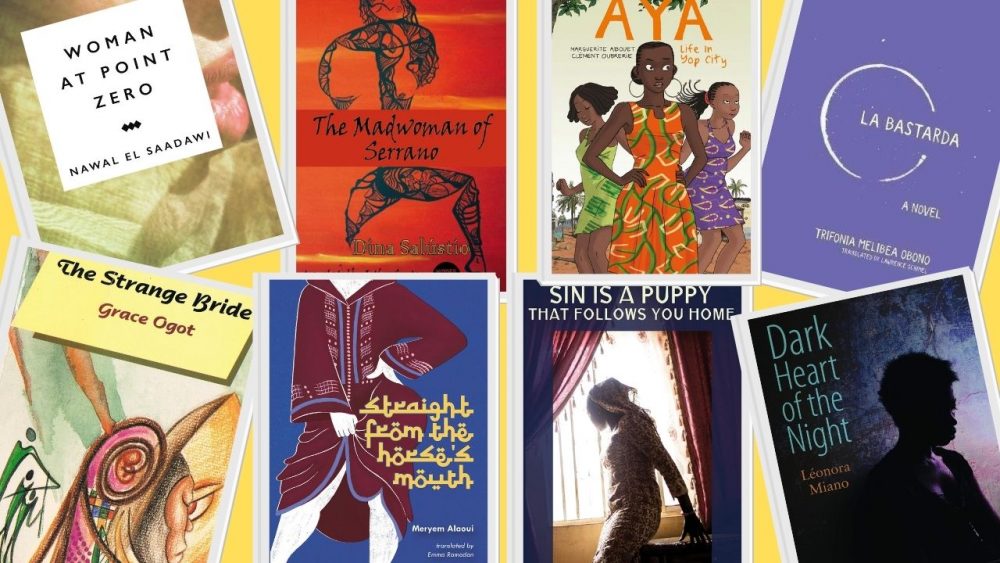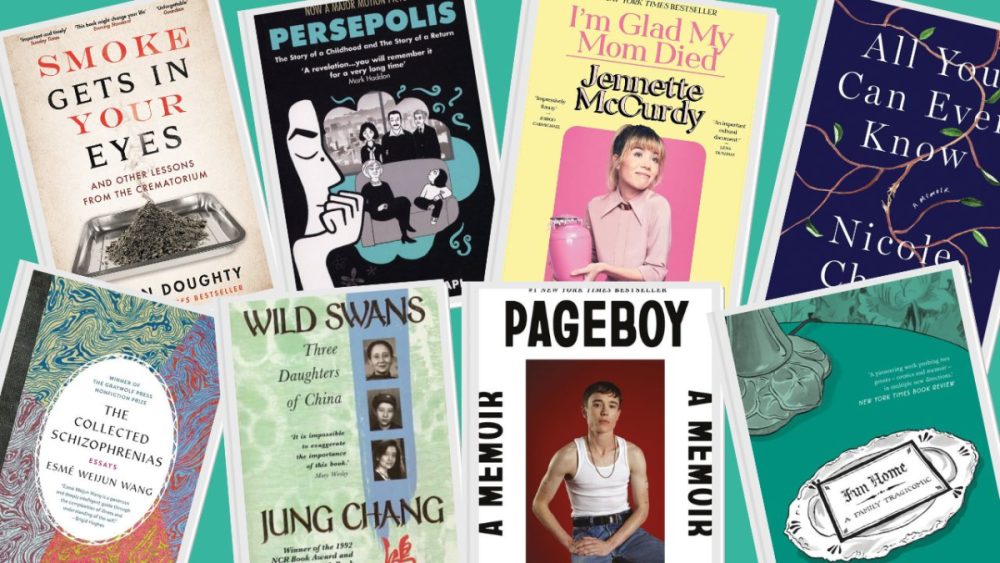Language and translation are inescapably tied together. Studying one or both can lead wide-eyed and curious linguists deep down historical, cultural, and even philosophical rabbit holes. When we study language and translation, we study anthropology, geography, history, tradition, and more. Books about language in translation can open doors to new ways of thinking and seeing ourselves and the world around us.
Few topics grip me more than those of language and translation. I have not formally studied either, but I find myself constantly reading books on both. Throughout my twenties, I’ve dipped in and out of studying the Japanese and Chinese languages, and I almost exclusively read fiction in translation.
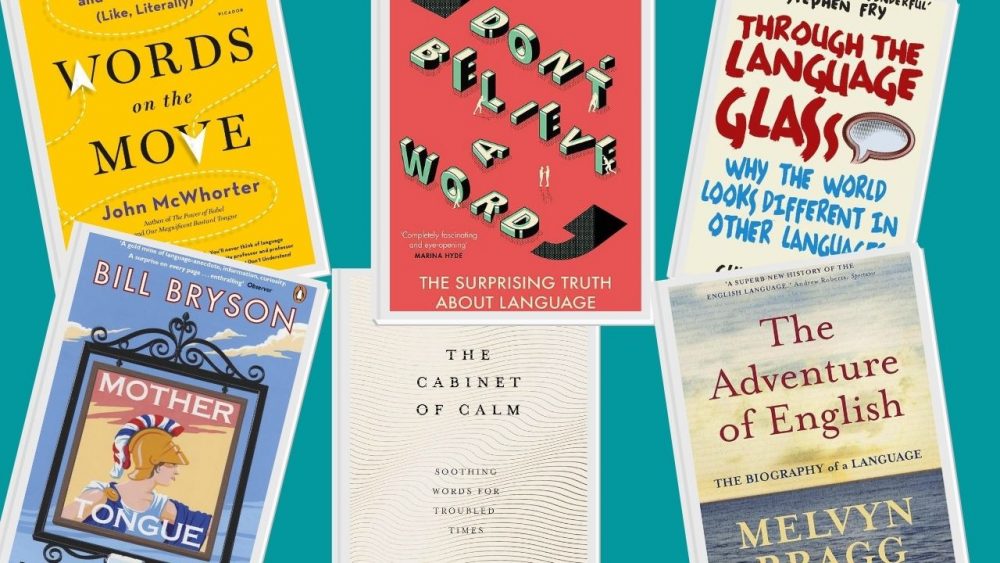
I become easily obsessed with accents and dialects. Nothing grips me harder than a deep dive into the history and philosophy of language and translation.
If you’re a budding translator or simply someone fascinated in how languages work and change — how they influence us and how we influence them — here are the best books about language and translation (very loosely separated into two categories) for you to enjoy.
Note: I’ve also made a conscious choice to avoid mentioning Noam Chomsky or Stephen Pinker here. They get enough attention and you already know their names. Here are some fresher faces (and Bill Bryson).
Books About Translation
As I said, these two categories are loose divides. As I also said, the topics are inescapably linked. But the following five books are all ones that focus more on translation and the relationships between world languages. They’re all books about translation in one way or another.
Who We’re Reading When We’re Reading Murakami by David Karashima
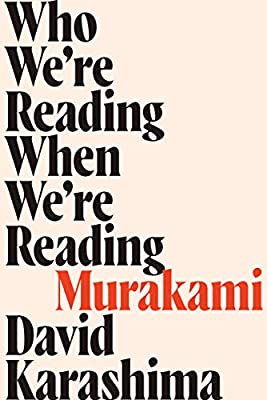
Haruki Murakami is Japan’s most widely-celebrated and successful modern novelist – not only in his homeland but across the planet. How was this accomplished? Who else took part in the growth of the “Murakami Industry”? This fantastic book puts the spotlight on Murakami’s English-language translators and editors: people like Alfred Birnbaum and Elmer Luke, who made Murakami a household name in the West.
Who We’re Reading When We’re Reading Murakami recounts stories of translating Murakami via interviews with Birnbaum, Luke, Murakami himself, and more. It’s a book that illuminates the vital importance of translators, the role they play in a story’s success, and the weight they carry on their shoulders.
If you ever wanted to get a far better, and deeper, look at (and appreciation for) the translator and their work, this is the book for you. David Karashima has done an incredible amount of research here.
Fans of Murakami will remember why they love his books the way they do, and budding translators will be reminded of the importance of their work. This is one of the most original books about translation out there right now.
Fifty Sounds by Polly Barton
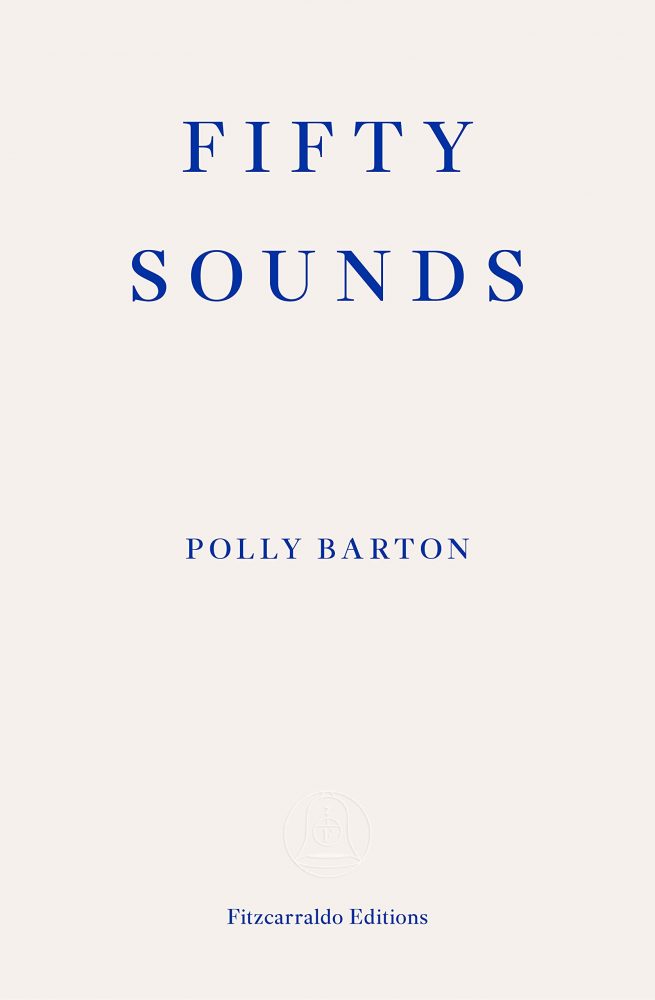
This is a book that fits into either category — books about language or books about translation — but, since Barton is a Japanese-to-English translator, we’ll put it here. Fifty Sounds is a memoir/essay collection that documents one young woman’s journey to discovering a language, one which she becomes so enamoured with that she ends up becoming a translator.
Polly Barton graduated from Cambridge with a degree in philosophy. From there, the JET programme took her to a remote Japanese island. In the course of just a few months, she finds herself growing obsessed with the unique beauty of the Japanese language.
Fifty Sounds documents Barton’s linguistic battle with Japanese as she works as a teacher and builds a liveable life in Japan. These essays explore the most fascinating aspects of the Japanese language, most notably its use of onomatopoeia.
Through these essays, which represent a kind of linguistic philosophy, we come to consider how learning language can unlock entirely new life experiences; how we can see and feel things we couldn’t before, once we have access to a new language.
That language gives us words we never had before, and now we are experiencing life through a different lens. It’s a transcendent experience, and Barton brings it to us with humour and wit, page after page. A truly enlightening and gripping read.
Is That a Fish in Your Ear?: Translation and the Meaning of Everything by David Bellos
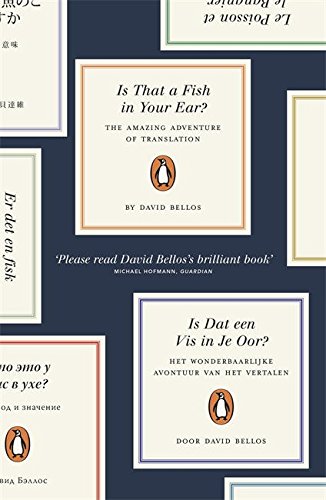
Author David Bellos is a UK-born, US-based professor, biographer, and translator. As a translator of French to English, he has won the Booker International prize. In this book, Is That a Fish in Your Ear?, Bellos takes a deep and often whimsical dive into cultural anthropology through the lens of language and translation.
Bellos here tackles everything from the translation of great world literature to advancements in translation technology. It’s Bellos’ approach to writing that makes this book such a joy to read. He has a wit and wisdom about him that makes the read an effortless joy, but the topics being broached are nevertheless broad and intense and, frankly, awe-inspiring.
How We Are Translated by Jessica Gaitan Johannesson
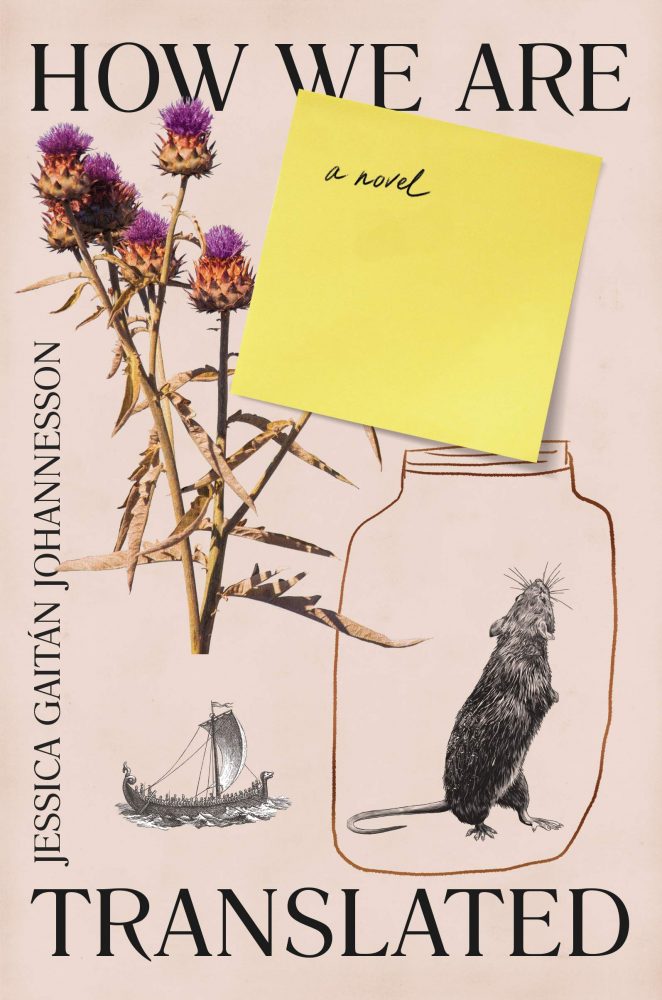
Being a novel, this is something of an outlier on this list, but How We Are Translated is no less enlightening and educational than anything else on this list. In fact, being a novel gives it the artful power to inspire some philosophical thought regarding language and its relationship to, well, relationships.
How We Are Translated is the debut novel of Jessica Gaitan Johannesson, a woman who grew up speaking Spanish and Swedish, and now lives her life in English.
Inspired by her own life and experiences, the novel is set in Edinburgh and follows the life of a Swedish woman working at a museum in Edinburgh Castle. She has a Brazilian-born Scottish boyfriend who is training to be an NHS nurse.
The book is not a straightforward narrative so much as it is a collection of disjointed moments, feelings, and events. It’s an almost abstract novel that explores the ways in which language plays a part in our work and our interpersonal relationships.
Between them, our protagonist and her partner have a lot of languages and cultures, to explore, and they feed into the good and the bad of their relationship. This is a book of big themes and ideas pertaining to language and translation.
Through the Language Glass: Why The World Looks Different In Other Languages by Guy Deutscher
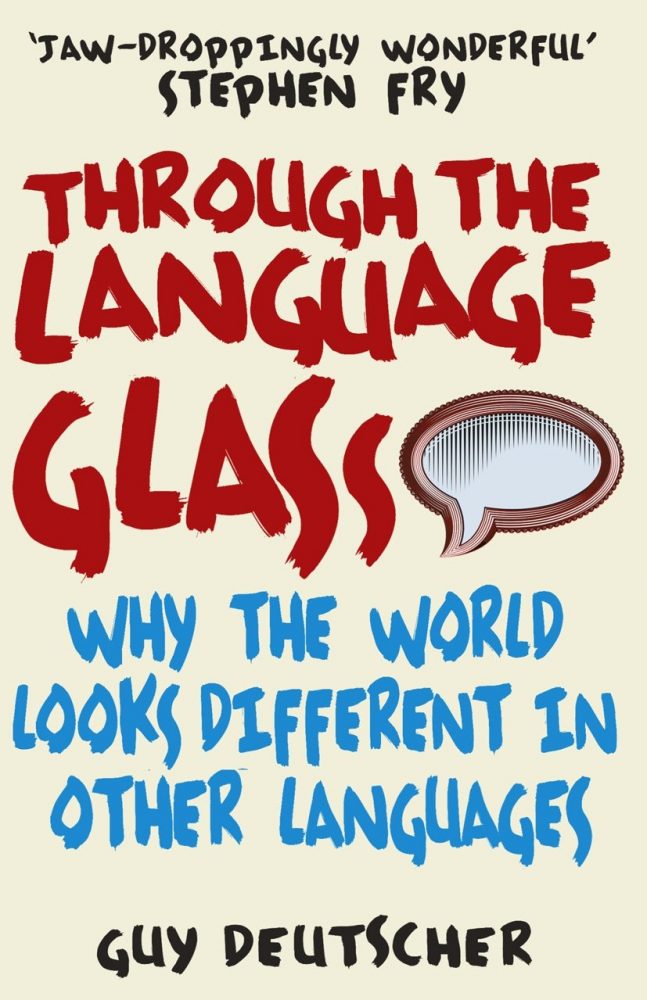
Israeli linguist Guy Deutscher is the only author to feature on this list twice. First, with Through the Language Glass. This 2011 book is academic but on a very approachable, almost playful, level. Through the Language Glass is the most famous book to attempt to wrestle with that eternally fascinating question: does our language change the way we see, think about, and interpret the world around us?
Through a blend of linguistic history, cultural history, and easy-to-follow scientific examination, Deutscher spends the book supporting his (fairly unpopular) opinion that, yes, our language does dictate how we think and see the world.
As a lover of linguistics, this is a question that has fascinated me endlessly. And while many linguists and translators (some of whom also appear on this list) disagree with Deutscher, it doesn’t mean his argument is worth anything less. This is a great read regardless.
Before the release of this book, Deutscher wrote this piece for The New York Times. If you enjoy it, you’ll likely love the book.
The Unfolding of Language by Guy Deutscher
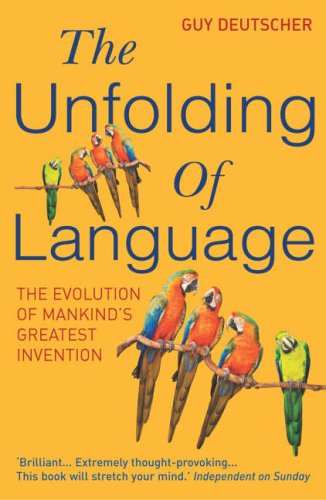
Before he penned that more controversial above work, Deutscher became a household name with his 2006 book, The Unfolding of Language. This book was first recommended to me by a friend who was, at the time, getting his MA in linguistics. He promised that it would be a well-rounded introduction to the topic, and it truly is exactly that. The Unfolding of Language is, as it says on the cover, the evolution of mankind’s greatest invention.
The book takes us on a rich and winding journey from the beginnings of language, and the purposes it originally had, to the vast landscape of world languages we have today. This book on linguistic history looks at the whys and hows of language, dismantling the Tower of Babel and building, in its place, something far more captivating.
Read More: 13 Inspirational Nonfiction Books
Empires of the Word: A Language History of the World by Nicholas Ostler
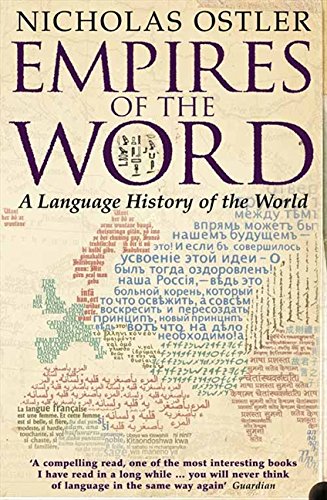
Nicholas Ostler has an impressive resume to read before even getting to this outstanding book. Having obtained degrees in both Greek and Latin from Oxford, he then studied under the legendary Noam Chomsky and finished his academic journey with a PhD in linguistics and Sanskrit.
With all of this academic baggage on his back, Ostler sets out on a vast and ambitious journey in Empires of the Word: a history of several millennial across the entire planet, as seen through the lens of language. The most important and valuable lens, argues Ostler, to look at history through.
A history of language leads us to a greater understanding of migration, politics and diplomacy, and even the schools of engineering and invention. The book details the very movement of language, how some have survived against all odds and others have adapted to the point of being unrecognisable. There are deep waters to plunder here, and the rewards are plentiful.
Books About Language
Language is an endless ocean to be plundered. When tackling the topic, we can investigate everything from how geography affects the way we speak to the inner workings of the human mind. Each of these books about language approaches the topic from a unique perspective and, chances are, one of them will be a new favourite book.
Don’t Believe a Word: The Surprising Truth About Language by David Shariatmadari
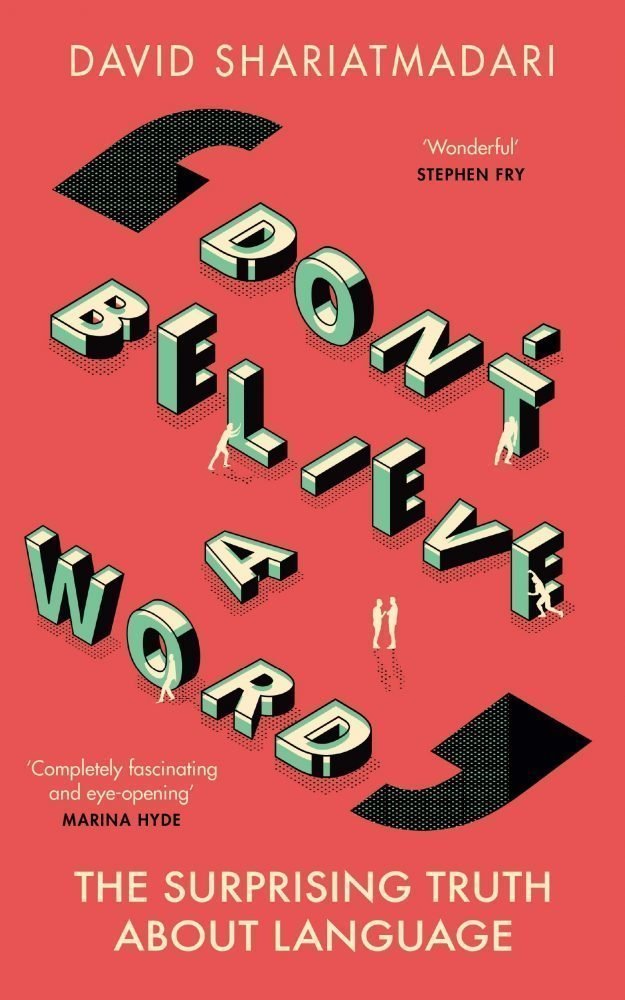
Here is one of the most gripping, fascinating, and absorbing books about language that I have ever come across. David Shariatmadari’s attitude and insight is contagious. Don’t Believe A Word is an unfolding journey into the roots of languages and how they travelled across lands and time.
The initial hook of Don’t Believe A Word is the idea that no word is untranslatable – that this is simply a popular and deceptive myth of language. While it may seem alluring at first, stripping away the idea of untranslatable words then leads us to a whole new world of exciting concepts and ideas about language history and etymology.
Don’t Believe A Word is a work of cultural enlightenment, full of exciting stories about world languages (things like gendered words, etymology, and even human consciousness). It’s a deep dive into language from multiple entry points, completely accessible to every reader, and infinitely fascinating.
An I-Novel by Minae Mizumura
Translated from the Japanese by Juliet Winters Carpenter
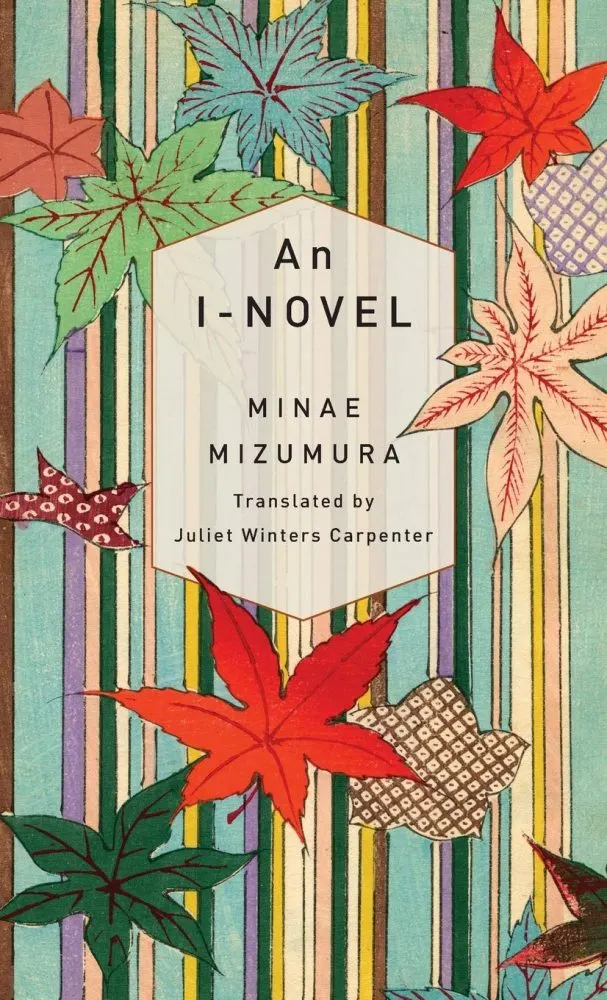
As its title suggests, An I-Novel is a piece of autofiction which blends the real-life events and experiences of its author, Minae Mizumura, with the rules and conventions of fiction writing.
An I-Novel traces the life of its author, a woman from Tokyo whose family moved to New York City when she was twelve. Twenty years later, she hopes to return to Tokyo, become a writer, writing in Japanese and rediscovering her language and culture along the way.
What makes this book so informative and lightening in an ocean of books about language is the fact that, when originally penned in Japanese, it was considered the first bilingual novel.
An I-Novel is mostly written in Japanese, with English peppered through out (in the English translation, the parts originally written by Mizumura in English are simply in bold).
What this bilingual aspect does is reinforce how its author is a product of two cultures and languages. She cannot simply write in one. She needs the use of both in order to fully express herself. The languages form the writer and so the writer must use both in order to write.
This is a piece of autofiction but it is also a pseudo-philosophical exploration of language as a vehicle for expression, communication, and understanding. A truly fascinating book.
The Adventure of English by Melvyn Bragg
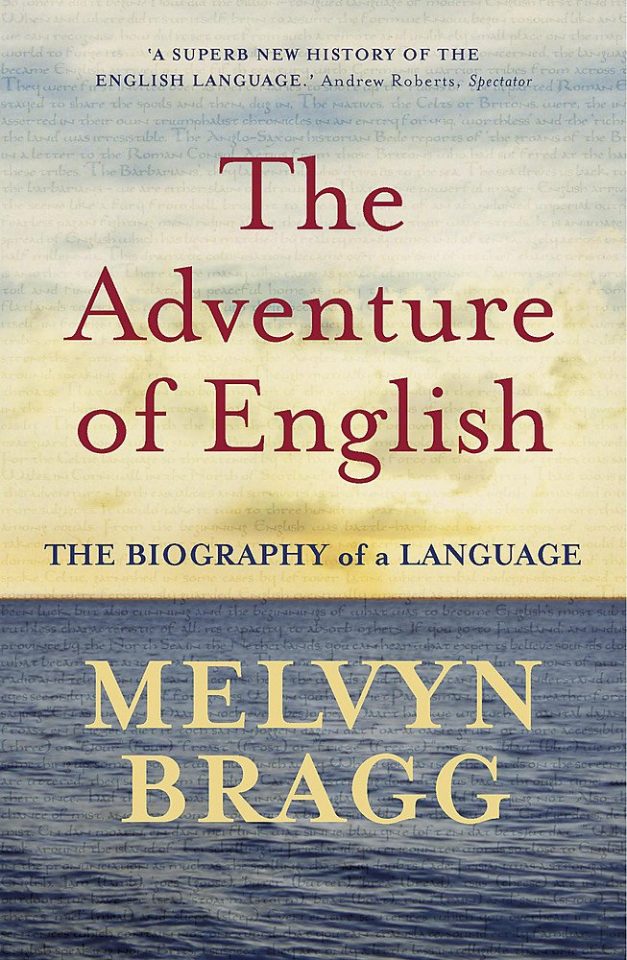
Throughout this article, I’ve referred to language as having travelled and made journeys, but it’s difficult to describe language as doing anything else, with it being ever in flux and, well, moving. Given the title of his book on the English language, Melvyn Bragg would likely agree.
The style of writing which the fiction-and-non-fiction author uses in The Adventure of English falls somewhere in the crevice between narrative and history. The book often anthropomorphises English, casting it as a wide-eyed adventurer. It’s one of the most ambitious and romantic books about language, but it is not insincere.
The Adventure of English is very much a piece of narrative nonfiction; a page-turner of a history book. It is not a book of philosophy or science, like many others on this list. But it is not less satisfying of a read for that. It’s a book with so much to enjoy and learn from, and one of the most enthralling books about language out there.
Mother Tongue by Bill Bryson
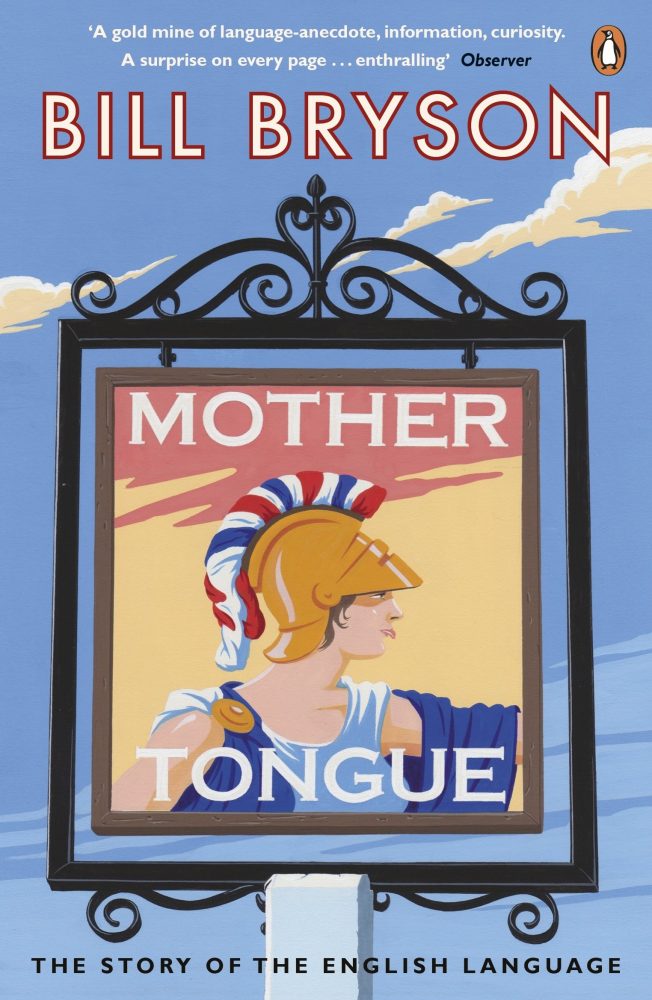
US-born Anglophile Bill Bryson has become something of a national treasure in the UK. While his personal politics are something of a minefield, his books are undeniably charming, telling us engrossing stories and showering us in facts, all through the medium of comedy.
It’s impossible to separate Bryson’s writing from his wit and personality; he brings so much of it to everything he writes. And that only makes his books more of a pleasure to read. Mother Tongue, alongside his short book on Shakespeare, is my personal favourite Bryson book, and one of the best books about language on the shelves.
Mother Tongue is a tangled but short exploration of the English language, full of anecdotes and facts pertaining to its history, makeup, etymology, and versatility. Mother Tongue is a celebration of English and a perfect light introduction to the subject of language and linguistics for anyone interested in dipping their toe in. It was one of the first books about language that I ever read, and it led me down an intoxicating road.
The Cabinet of Calm by Paul Anthony Jones
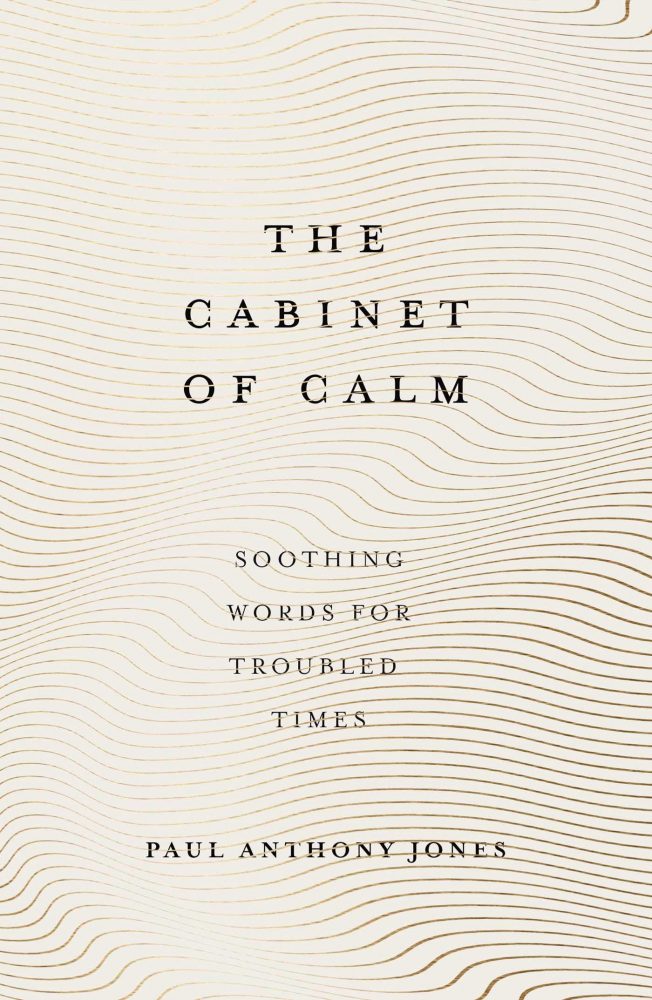
Here’s a very unique and interesting new book. The Cabinet of Calm, release in 2020, is both a collection of rare and obscure English words and a tool for finding calmness and comfort in a difficult age. This is a short, digestible, dip-in-and-out kind of book that celebrates the power of words as singular ideas and entities that can carry so much weight and responsibility.
Each word in this book has the power to make you smile, feel relaxed, and find your centre. It truly is a cabinet of calm. While The Cabinet of Calm isn’t an intense examination of linguistics or translation, it is a fun book that can teach us many forgotten words, and even engage our philosophical brains with the concept of words giving meaning to ideas.
If these words are no longer used, where did the feelings they describe go? And how do we discuss them today? The Cabinet of Calm is real comfort food. A charming and sweet book that any bookworm or fan of linguistics can enjoy simply and calmly. A unique approach to the idea of books about language.
Words on the Move by John McWhorter
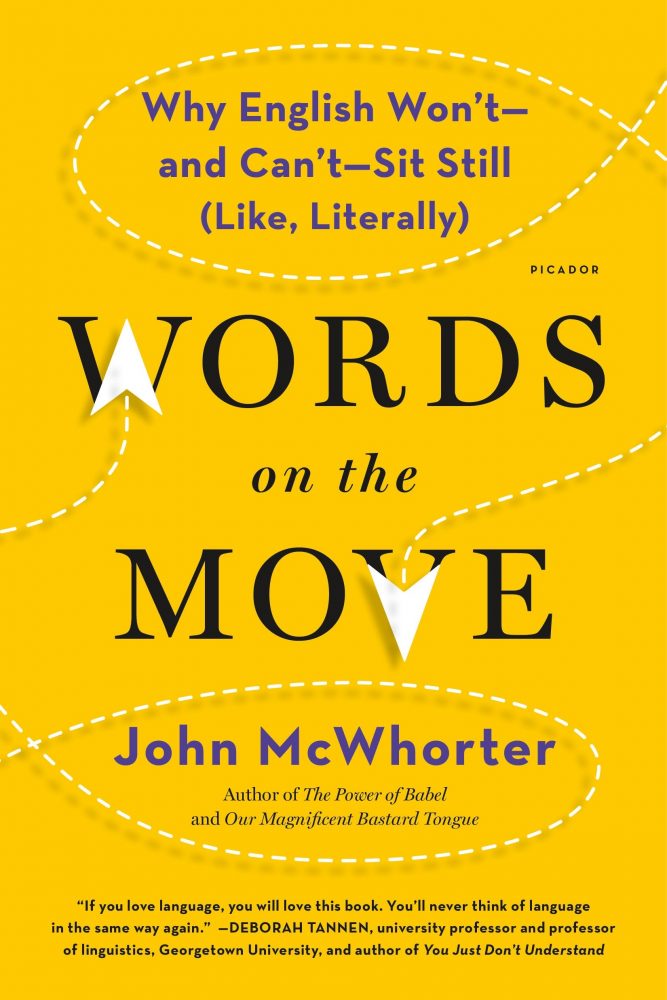
If you want your books about language to be easy-to-digest but repeatedly awe-inspiring, Words on the Move will be your jam. While the book takes an entirely Anglo-centric perspective, it is nevertheless an illuminating and exciting deep dive into the history of English etymology and the evolution of our language.
Words of the Move tantalises readers, over and again, with facts about specific words, where they come from, what they once meant, and how they’ve changed. It’s a positive book that congratulates English on its resilience, dynamism, and ability to break rules and experiment.
English is an undeniably infuriating language, full of paradoxes and nonsensical hypocrisies, but it is also a language that shifts and changes on a daily basis. Words on the Move is one of those books about language that will wind up purists who have an idea of what English should sound like, and for that alone, I congratulate it.

